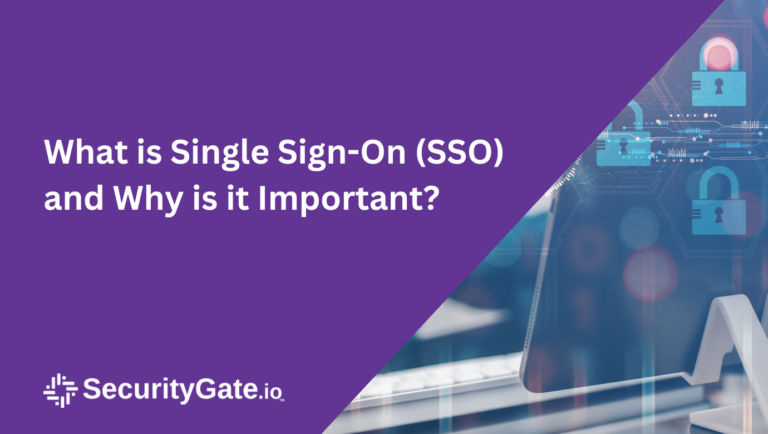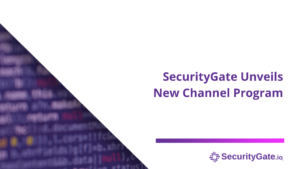Single-sign-on is an authentication method. It enables users to log in to multiple applications and services with one set of credentials. This method ensures secure access.
SSO simplifies access to multiple platforms and apps. Instead of remembering and entering multiple passwords a day, you only need one. This eliminates the need to log in each time.
SecurityGate has integrated with Okta and Azure AD. This enables users to access resources securely and seamlessly. Multi-factor authentication and bring-your-own-key encryption are also included.
How does SSO work?
Single Sign-On (SSO) is a system that allows an individual to use a single set of credentials to authenticate and access multiple systems. It is based on the idea of identity federation, which allows the sharing of identity information between independent and trustworthy systems.
When a user signs into an SSO service, such as Okta or Azure AD, an authentication token is created. This token remembers that the user has been verified. A digital record is maintained and kept either in the user’s web browser or the single sign-on service’s servers, serving as an authentication marker.
The user’s request must be approved by the application. To do this, the SSO service will pass a token to the application. This token is generated every time the user accesses an app or platform.
How does SAML enable Single Sign-On?
Security Assertion Markup Language (SAML) is an XML-based open standard. It allows two parties, an identity provider (IdP) and a service provider (SP), to exchange authentication and authorization data.
Okta acts as the SAML IdP and uses SSO and MFA to authenticate the user. Okta returns an assertion to the client applications through the end user’s browser. The client applications validate the returned assertion and allow the user access to the client application.
What are the benefits of SSO?
SSO has become increasingly useful for organizations across the world. The process is highly secure and convenient for users. A few key benefits include:
1. Increased business productivity
SSO cuts down on time wasted for internal teams. Users require less time for logging into multiple applications. Consequently, IT departments have a reduced workload when it comes to helping users reset or recover their passwords.
2. Stronger passwords
SSO simplifies the process of creating and remembering strong passwords for users, as they only need to remember one password.
*Strong passwords are important. A good way to create a secure password is to use random phrases or words that are difficult to guess. The length should be at least twelve characters, but even longer is better.
3. No repeated passwords
When users have to create and remember several passwords for different apps and services, “password fatigue” can set in. Using the same password across several applications is a major security risk. SSO eliminates the need for multiple logins by allowing users to access all their accounts with a single login.
4. Improved end-user experience
SSO creates enjoyable user experiences for both customers and employees. Remote and hybrid working environments are becoming more commonplace. Consequently, the number of workplace apps used to meet workforce requirements is increasing. With SSO, logins are automatic and easily accessible.
SecurityGate takes security seriously
The SecurityGate Platform integrates with Okta and Azure AD to identify and protect the user’s log in credentials. SSO adds an additional layer of security to the login process making it harder for unauthorized users to gain access to your data, and it provides a more seamless user experience.
For more information contact us at [email protected].






